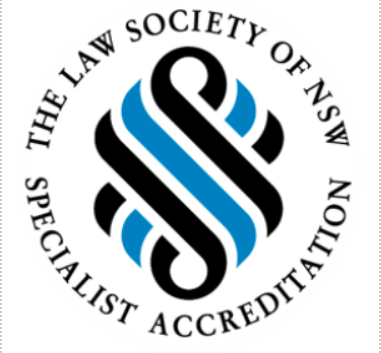Finding an Australian Accredited Specialist in Immigration Law
Immigration law is a complex area of practice and in some circumstances, it is not merely the legislative hurdles faced by clients but the interaction of this area of law with many other areas of practice including criminal and employment law. The consequences of not getting your immigration strategy right are high stakes and it may pay to engage an Australian Accredited Specialist in Immigration Law.
What is an Accredited Specialist?
An Accredited Specialist is a solicitor who has obtained the highest recognition in their profession as assessed by the Law Society. They are in essence, experts in their field of specialisation, in this case, immigration law and have had to undertake rigorous and meticulous additional testing with the Law Society in key areas of competency to be conferred this status. This is in addition to having to evidence practice in law for at least five years, with three years in their area of specialisation.
Once a solicitor is conferred this highly prestigious status, it is not simply a ‘one and done’ circumstance. Accredited Specialists must continue to excel in their area of practice by maintaining this peak level of knowledge each year in order to renew their accreditation. This is in addition to and over and above the requirements to maintain standard registration as a solicitor to practice in Australia.
Why engage an Accredited Specialist?
You might need to seek the services of an Accredited Specialist in Immigration Law if you have a complex immigration matter that requires a thorough understanding of the technical provisions and you need strategic advice to navigate this. In non-lawyer jargon, this really means that you may find yourself in a situation where no other migration agent or solicitor has a solution for you.
If this occurs, it may not be the case that there is no solution, but rather, other practitioners may not have encountered the type of situation you have found yourself in. An Accredited Specialist in Immigration Law has the depth of experience that is needed to find an innovative pathway.
This is the reason why an Accredited Specialist may be the ‘lawyer’s lawyer’ as they are often sought out by other practitioners to provide guidance and advice on novel questions or to provide private tuition to those practitioners who have been sanctioned.
How do I find an Accredited Specialist?
Unlike the mysterious loch ness monster, Accredited Specialists can be located through a search of the NSW Law Society Register of Solicitors. On this register, you can filter by selecting the ‘Immigration Law’ as the specialisation you are seeking:
Alternatively, you can identify Accredited Specialists by the following official seal:
This can only be displayed by Accredited Specialists and the NSW Law Society tightly controls its use and display. As of today, Agape Henry Crux has two (2) Accredited Specialists in Immigration Law, Angela De Silva and Jason Ling and they specialise in handling complex visa cases.
How Can Agape Henry Crux Help You?
The Australian visa can be very complex - if you want to find out more about a visa or citizenship matter, please do not hesitate to contact us. You can book a Migration Planning Session with one of our immigration lawyers to seek professional advice by calling +612 8310 5230 or email us to book in a time at info@ahclawyers.com.
We speak fluent English, Korean, Japanese, Mandarin, Cantonese, Indonesian, Burmese and Malay. If these aren’t your language, we can also help you arrange an interpreter.
This article/presentation (“publication”) does not deal extensively with important topics or changes in law and is not intended to be relied upon as a substitute for legal or other advice that may be relevant to the reader's specific circumstances. If you find this publication of interest and would like to know more or wish to obtain legal advice relevant to your circumstances, please contact our office.


